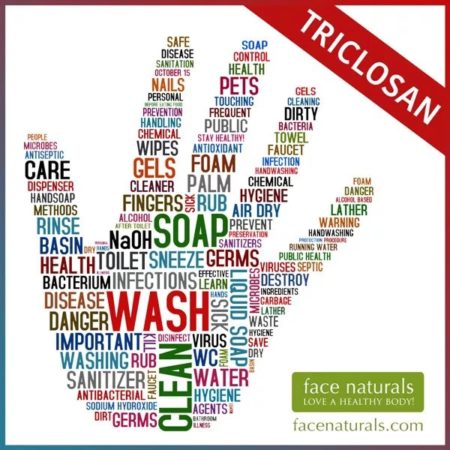Issues With Antibacterial Soaps
These days, we have antibacterial soaps and wipes everywhere, yet as a whole, our society is sicker now than it was a few decades ago. Why? Well, there are 3 issues with the antibacterial concept.
1) Illness-causing germs are both bacteria and viruses. The concept of antibacterial focuses on killing just bacteria and nothing else. This leaves viruses and fungi free to roam and spread.
2)There has been no study to demonstrate antibacterial soaps are significantly more efficacious than just plain soap and water in reducing germs and chances of infection.
3)Antiseptic components (triclosan and 19 others of its kind) of antibacterial soaps and wipes have been shown to promote resistance to antibiotics.
How Soap & Water Work Against Illness-Causing Germs?
Why do we need both soap and water to remove germs? That is a two-fold response and an understanding of the polarity of these polymers (complex chains of molecules). The polarity of each polymer is as follows: water = polar, germs = nonpolar, soap = polar + nonpolar. Like polarities attract each other and dissolve well together.
1) Since soap has both polar and nonpolar components, it is the conduit to mixing water and germs. The polar charge of water attracts the polar chain of soap, while the nonpolar chain of soap attracts nonpolar germ polymers. This loosens germs from the skin.
2) As soap is slippery and sudsy, we continue to wash our skin longer with water to remove all soap of the skin, thus removing germs with it.
A study on the Effect Of Handwashing On Child Health, showed at least a 50% reduction in pneumonia and diarrhea. Additionally, the use of antibacterial soaps had no significant change in outcomes.
What Is Triclosan?
The culprit, triclosan is the most common active ingredient used in “antibacterial” products such as soaps, toothpaste, shampoos and other over the counter consumer products for kill or inhibit bacterial growth. Although a good antibacterial agent, it also makes bacteria more resistant to antibiotics. Tricolosan kills normal bacteria and allows mutant bacteria to survive and reproduce. Thus the mutant bacteria change and becomes immune to many antibiotics.
Antibiotic-resistance appears to be more problematic among people who are sick, such as asthmatics and diabetics. These individuals experience more fevers, runny noses and coughs, whereas healthy people are unaffected.

How Triclosan Effects Plumbing
Triclosan and similar antibacterial agents pose more harm than good to all living things, to our water supply and the environment.
As the owner of a plumbing company, Coast View Plumbing, my team and I have noticed the drainage system of buildings that use antibacterial soaps were terribly clogged, more so than others. We believe that these types of soaps kill beneficial bacteria in drains and reek havoc on the system. Sludge in these drains look like black tar and are almost as hard as cement.
Ultimately, it runs down drains into our waste water system. This eventually meets up with our drinking water system via oceans, rivers, etc. and then guess what? We all get to drink it, making us all more resistance to antibiotics. It makes fish unable to reproduce. Who’s next? If you can avoid the stuff don’t use it. It hasn’t been proven to be beneficial to our health nor the health of our planet.


Leave A Comment